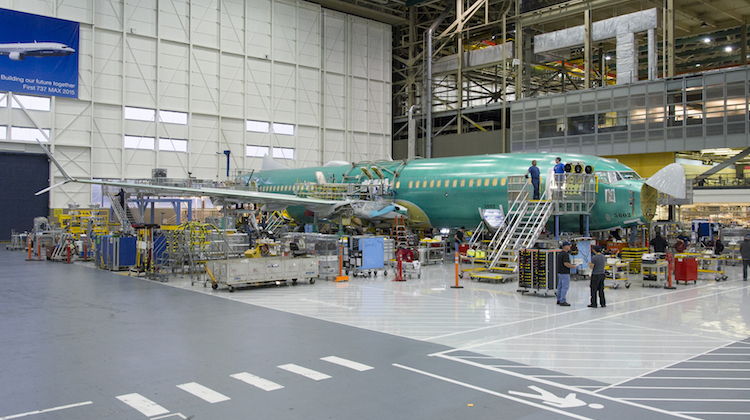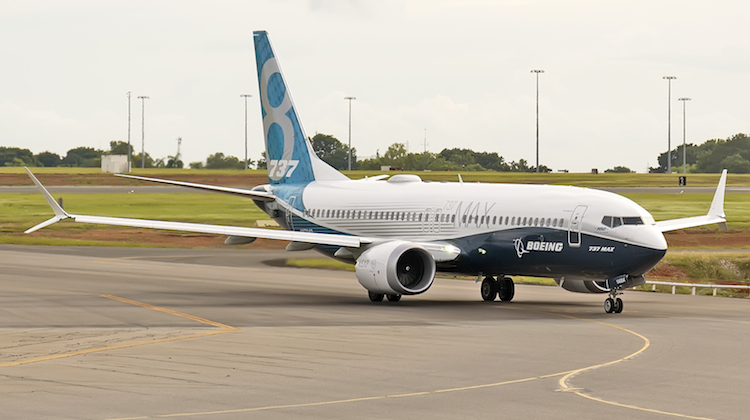
Boeing has scrapped its full-year earnings forecast for calendar 2019 due to the impact of the global grounding of its 737 MAX program.
The company said new guidance would be issued at a later date after reporting a 13 per cent drop in net profit for the three months to March 31 2019, which fell to US$2.15 billion (A$3.06 billion) from US$2.47 billion (A$3.53 billion) in the prior corresponding period.
Revenue fell two per cent to US$22.9 billion, Boeing said in a regulatory filing on April 24 (US time).
The result was due in part to the hit from the 737 MAX program, with Boeing having paused deliveries and slowed production following the global grounding of the type in response to two fatal crashes in October 2018 and March 2019.
However, Boeing said the impact of the 737 MAX grounding was partially offset by higher defence and services volumes.
Funds were spent in the period on a software fix to address problems in the anti-stall system believed to be a factor in both the 737 MAX crashes of Lion Air and Ethiopian Airlines, and for training associated with the fix.
The company reported US$2.8 billion of operating cashflow in the quarter, down from US$3.136 billion in the prior corresponding period.
Boeing estimated in its results presentation that the 737 MAX grounding since mid-March had cost it US$1 billion in increased production costs for maintaining the 737 program and its staffing.
It attributed the “uncertainty of the timing and conditions surrounding the return to service of the 737 MAX fleet” for its decision to withdraw previous guidance, with its new projections for calendar 2019 to be issued at a later date.
After recording its best financial result in history in calendar 2018, Boeing forecast in January it expected revenues between US$109.5 billion and US$111.5 billion for the current year, as well as operating cash flows of between US$17 billion and US$17.5 billion. The projections reflected higher volumes across all its business units.
Boeing said it delivered 89 737 aircraft in the three months to March 31 2019, down from 132 in the prior corresponding period.
On a more positive note, the number of 787 deliveries rose by two to 36 aircraft, while 767 deliveries increased from four to 12.
Production of the Boeing 737 MAX was reduced from 52 to 42 aircraft per month, and deliveries of all civil aircraft fell 19 per cent to 149, compared with the prior corresponding quarter.

The company’s total backlog of US$487 billion worth of orders included 5,600 commercial aircraft worth US$399 billion (at list prices), with 4,625 of those being 737 MAX aircraft.
Its biggest defence deliveries in the quarter were 22 AH-64 Apache (remanufactured) aircraft, up from six in the previous quarter.
Defence, Space and Security revenue increased two per cent in the quarter to US$6.61 billion, from US$6.48 billion previously, on the back of higher volumes across its satellites, weapons and surveillance aircraft, partially offset by a lower C-17 volume.
During the quarter, the division was awarded a multi-year contract for 78 F/A-18 Super Hornets and five extra large unmanned undersea vehicles for the US Navy as well as aircraft for the UK Royal Air Force and UK Navy and the Royal Norwegian Navy.
Defence, Space and Security booked orders worth US$12 billion in the quarter and the backlog grew to US$67 billion.
Global Services revenue increased 17 per cent to US$4.6 billion, primarily driven by higher volume across its portfolio to produce earnings from operations of US$653 million (US$647 million previously).
“Across the company, we are focused on safety, returning the 737 MAX to service, and earning and re-earning the trust and confidence of customers, regulators and the flying public,” Boeing chief executive Dennis Muilenburg said in a statement.





